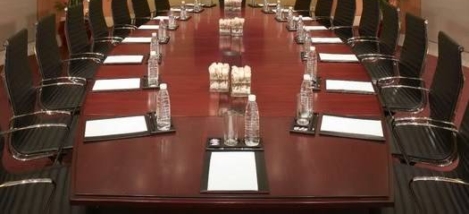August 10, 2016
Poor tech and long meetings remain key sources of workplace misery 0
 Badly run and overrunning meetings remain amongst the main sources of workplace conflict and unhappiness, according to a study of 1,000 US employees from workplace software provider Eventboard. The main sources of this conflict appears to be the number of meetings that overrun and poor technology, claims the report. More than half (56 percent) of frontline employees spend 1-2 hours in meetings daily and three-quarters (75 percent) of senior and mid-management level employees spend 3-4 hours in meetings daily. The report also highlights the inadequate provision of workplace technology even though the tools people use are seen as essential for their happiness and productivity. More than half of respondents claim they have to supplement the technology they are given by their employer with their own devices, even though technology can be twice as important as other perks in terms of making people happy and productive.
Badly run and overrunning meetings remain amongst the main sources of workplace conflict and unhappiness, according to a study of 1,000 US employees from workplace software provider Eventboard. The main sources of this conflict appears to be the number of meetings that overrun and poor technology, claims the report. More than half (56 percent) of frontline employees spend 1-2 hours in meetings daily and three-quarters (75 percent) of senior and mid-management level employees spend 3-4 hours in meetings daily. The report also highlights the inadequate provision of workplace technology even though the tools people use are seen as essential for their happiness and productivity. More than half of respondents claim they have to supplement the technology they are given by their employer with their own devices, even though technology can be twice as important as other perks in terms of making people happy and productive.







 The changing energy demands of British cities are revealed in
The changing energy demands of British cities are revealed in 





















